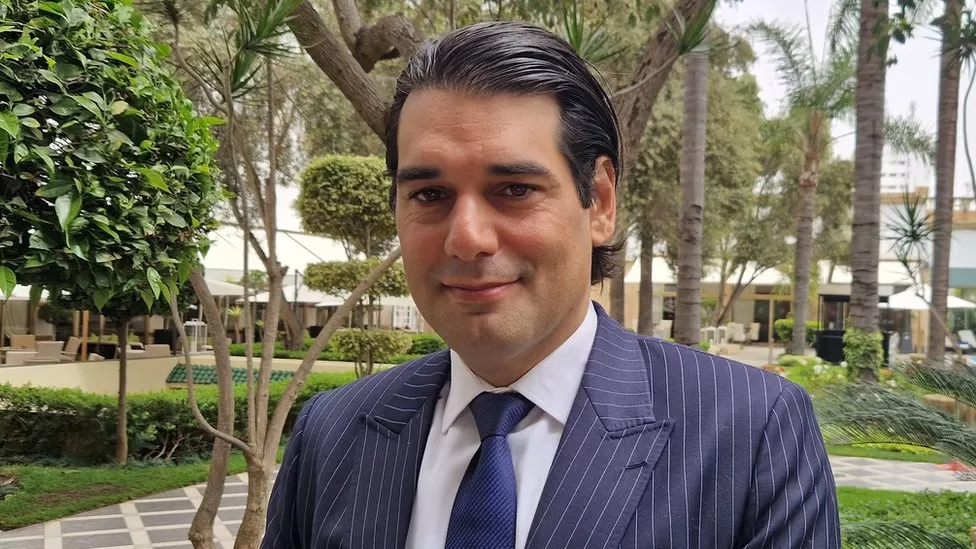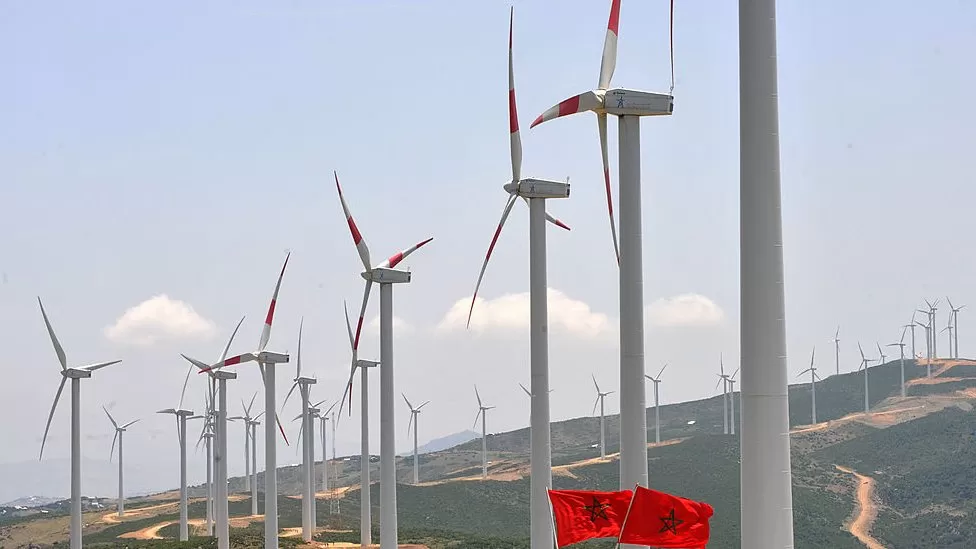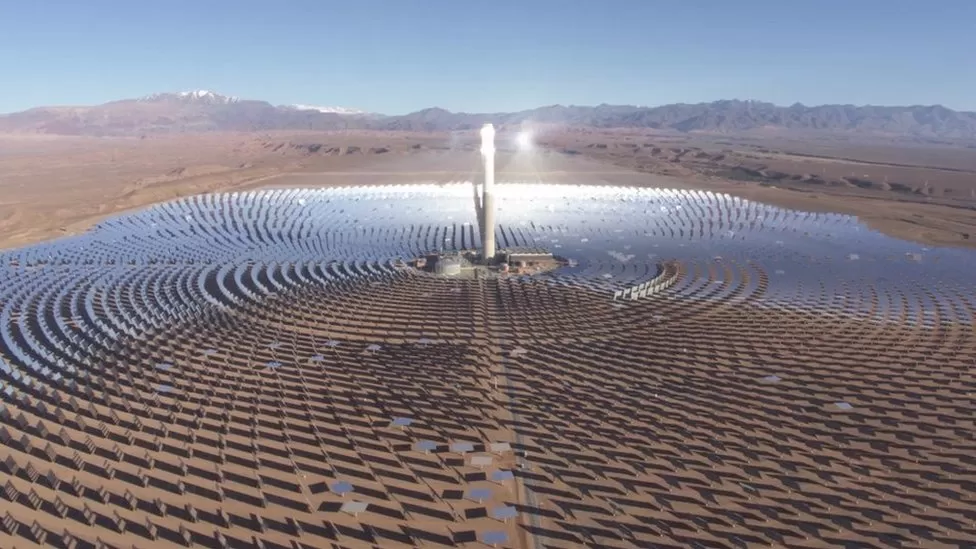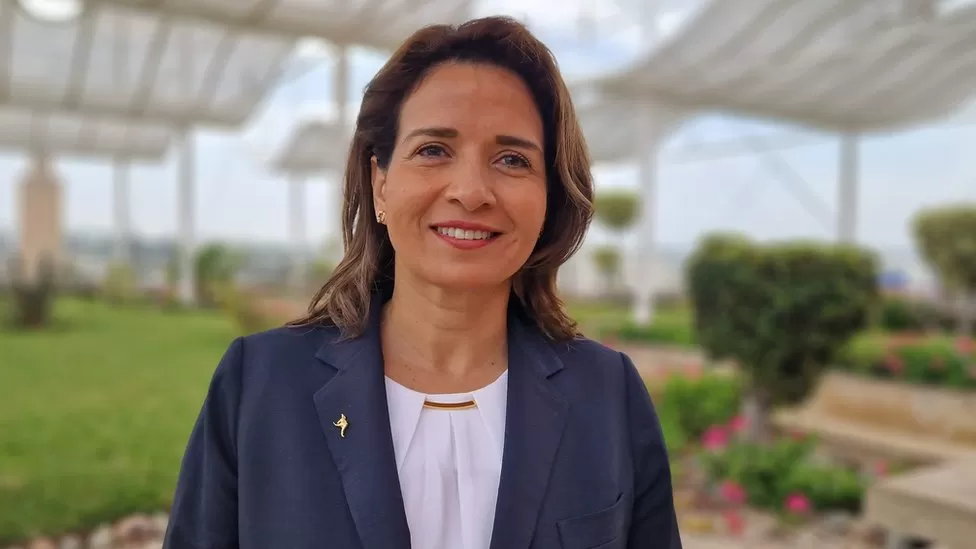The Moroccan energy entrepreneur

Moroccan energy entrepreneur Moundir Zniber believes that Morocco’s abundant resources can play a significant role in meeting Europe’s energy demands. I strongly believe that he is right, since he is driven by his passion and recognising opportunities amidst crisis. In my opinion, Morocco has the best chance for Europe to reduce its reliance on Russian gas. Over the past 15 years, Zniber has built his company, Gaia Energy, into a leader of the renewable energy revolution in Morocco. Despite the absence of oil and natural gas reserves, Morocco possesses remarkable solar and wind resources, which can be described as astonishing, without a doubt. To have a more profound understanding go through their Linkedin- Gaia Energy Holding | LinkedIn.
Conflict & Solution

The conflict in Ukraine has prompted European politicians to intensify their efforts in addressing climate change by adopting clean energy sources. However, Morocco could be part of the solution, given its proximity to Europe and ambitious plans to generate 52% of its electricity from renewable sources by 2030. Their ideal goal should be to export a significant portion of this electricity to Europe through undersea cables. In spite of that, I feel like Morocco still needs to construct numerous solar and wind farms, as the country currently depends on imports for 90% of its energy needs, primarily from fossil fuels. Nevertheless, Morocco has already made tangible progress in boosting its renewable energy generation, exemplified by projects like the massive Noor-Ouarzazate Solar Complex. As the world’s largest concentrated solar power plant, this facility uses mirrors to concentrate sunlight onto central tower receivers, creating steam that drives turbines to generate electricity. This impeccable technology was developed by Saudi Arabian firm ACWA Power, with funding from the World Bank and the European Investment Bank, the Noor-Ouarzazate complex now spans over 3,000 hectares. As I had mention it in my earlier blog- World’s Bank Interest Free Loan Of Sh40.8 Billion To Kenya – BullishBehaviour, The World Bank works closely with its member countries to develop and implement development projects and programs, and it is committed to promoting environmental sustainability, social inclusion, and good governance in its operations.
Electricity Needs

Zniber has recently revealed that private Moroccan firms, including Gaia Energy, would be planning to export solar and wind-generated electricity as well as green hydrogen produced from renewable energy, which in my opinion is a great idea since Gaia Energy is working on wind and solar projects that has the capability to satisfy up to 4% of Germany and Italy’s electricity needs. Additionally, they are developing six green hydrogen projects that could meet 25% of the EU’s demand. British energy start-up Xlinks also aims to construct an undersea electricity cable connecting Morocco to the UK, with the objective of providing 8% of the UK’s electricity through Moroccan solar and wind power by 2030.
According to the stats provided by The World Bank, increasing Morocco’s solar and wind power generation could bolster economic growth in the country. It would decouple Morocco from the volatility of fossil fuel prices and create much-needed employment opportunities, potentially generating up to 28,000 new jobs each year in a country with an 11.2% unemployment rate. Moreover, it would position Morocco as an industrial hub for manufacturing green industrial products, such as renewable energy-powered cars. Nevertheless, achieving Morocco’s 2030 renewable energy targets is estimated to cost $52 billion, which I think will mostly require private sector funding.
Conclusion

Morocco’s Minister of Energy Transition and Sustainable Development, Leila Benali, acknowledges that slow growth in renewables in recent years has been influenced by global factors, including the impact of the pandemic on supply chains (I’ve talked about this in detail in the previous blogs-How Has COVID Affected Businesses – BullishBehaviour). Benali highlights the need to overcome internal obstacles, such as streamlining bureaucracy and ensuring swift access to land permits for investors. The government’s energy strategy focuses on ramping up renewables, increasing efficiency, and integrating further into international energy markets. While prioritising access to low-cost green energy for Moroccans, Benali also emphasises the historic opportunity to integrate with Europe’s energy market, which could incentivize private investment. The World Bank’s Moez Cherif suggests that Morocco should both increase exports of renewable power and enhance domestic consumption, seeing value in pursuing both approaches. After keeping all this information in mind, I can conclude that Morocco can solve Europe’s energy crisis. Morocco has big ambitions to export electricity produced by solar and wind farms to Europe.
If you liked this reading, and want to read more of our handcrafted blog posts, visit our Blog page.

No responses yet